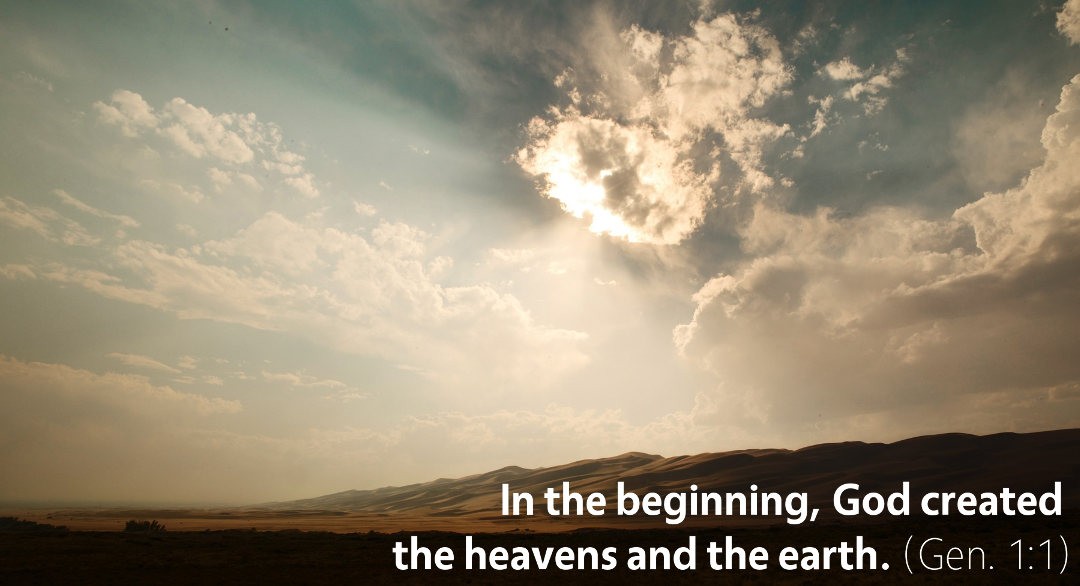Bible Readings for January 1st
Genesis 1 | Matthew 1 | Ezra 1 | Acts 1
There is a beautiful simplicity to Genesis 1 that masks its rich theological depth. Nothing about the straightforward description of each day’s creation nor about the repetition of God’s decreeing creation into existence (“Let there be…”) or of declaring all his creation to be “good” would rank this chapter as one of most difficult passages to read in the Bible. Even so, this passage is foundational for understanding the rest of the Bible in at least four ways.
First, Genesis 1 teaches that creation is the handiwork of the sovereign God of heaven and earth. While many primitive myths describe creation as having come as a result of the gods’ fighting, dying, or procreating, or as being merely an extension of some god(s), Genesis 1 announces that creation is the distinct artistry of the sovereign Lord of the universe. That Creator/creation distinction is fundamental to all genuinely biblical theology.
Second, Genesis 1 demonstrates that creation is good—in fact, it is very good. Against ancient teachings that creation is somehow evil and that real goodness only exists in the spiritual world, Genesis 1 records a repetition of God’s divine approval on everything he created as good, and on the totality of his creation as “very good” (Gen. 1:31). Unless we first recognize the goodness of creation, we cannot truly understand the horrific destructiveness of sin, or the ultimate goal of salvation as the good re-creation of the heavens and the earth.
Third, in the context of the Pentateuch (the first five books of the Bible), God here establishes the basis for giving his law by creating all things by his word.1 The God of the Bible is a talking God, not one of the mute idols that other nations worshiped. His word has extraordinary creative power, and part of the significance of that power is a demand that God’s people listen to him and obey him when he speaks.
Fourth, Yahweh places humankind in a unique place of dominion over creation. God explicitly gives the man and the woman charge over all the animals in the sea, the heavens, and the earth, instructing them to fill the earth and subdue it, exercising benevolent reign over everything else that God created (Gen. 1:26, 28). While God did bless animals along with the man and the woman (Gen. 1:22, 28; see also Gen. 2:3), it is only the man and the woman who carry the distinction of being created in God’s own image, to reflect his own glory in an intimate, personal way (Gen. 1:27).
Genesis 1 gives us a fly-by account of the creation story that undergirds the whole story of the Bible. Tomorrow, as we study Genesis 2, we will see the creation story from a different angle, zooming in on the story of God’s specific purposes for the man and the woman.
1 Allen P. Ross, Creation and Blessing: A Guide to the Study and Exposition of Genesis (Grand Rapids: Baker Academic, 1996), 102.
Podcast: Play in new window | Download (5.0MB) | Embed
Subscribe: Apple Podcasts | RSS | More

Scripture quotations are from The Holy Bible, English Standard Version copyright © 2001 by Crossway Bibles, a division of Good News Publishers. Used by permission. All rights reserved.


